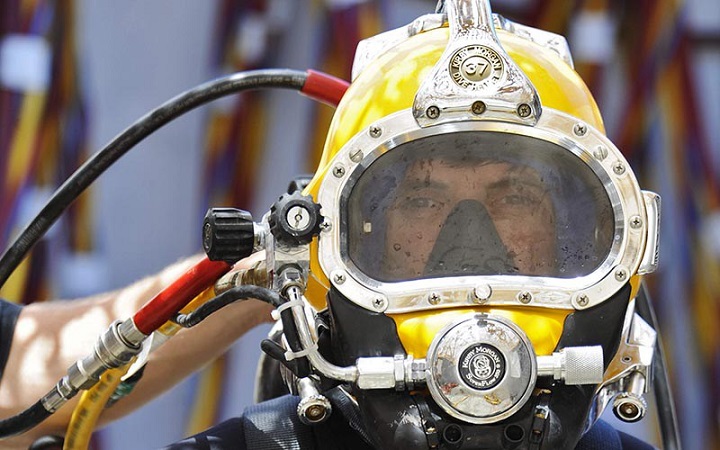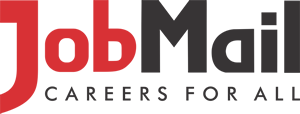Welding Jobs – Exploring Underwater Welding
Today the Job Mail team not only talks about welding jobs, but underwater welding jobs, giving you an overview of what this profession entails, what type of qualifications you will need and what type of work environments you can expect. Ready to dive into the whole new world of underwater welding?

Underwater Welding Jobs
Underwater welding jobs entail the process of Hyperbaric Welding. Hyperbaric Welding is used to describe completing welding tasks at elevated pressures, which would normally be under water. This is a job performed by commercial divers, trained to complete specific tasks and to use a wide selection of both hand and power tools.
Mainly, your duties as an underwater welder include the planning and execution of a welding job according to the specifications. But, like all jobs, there are tons of skills and duties involved when it comes to a more specialised field like this.

Diving jobs within this specialised field requires that you be able to demonstrate a high level of competency when it comes to both underwater welding as well as welding on dry land. Do note that underwater welders require a commercial diving qualification.
As an underwater welder, you will not only be required to work with different types of tools, but also perform different types of procedures, depending on the task at hand.
Depending on the company you work for, professionals within this specific industry may be required to perform a range of tasks including non-destructive testing, drafting, cutting (underwater), rigging, fitting and even photography (underwater). Working within this field, good communication skills, teamwork and interpersonal skills will form part of your day to day life.
Commercial diver jobs within welding requires a steady hand, precision and the ability to work in conditions that can very quickly become less than favourable. Requiring that you are able to follow instructions to the T, welding jobs within this specific industry do also require the application of critical thinking.
[youtube id=”aE4Dtl2IBJo” align=”center” maxwidth=”720″]
As an underwater welder, you will also be required to fulfil other ‘not quite on the job’ tasks. You might be responsible for maintaining your equipment and ensuring that everything is working properly. You might also be required to waterproof electrical leads. The dive supervisor is generally in charge of ensuring that all communication equipment is ready and working.
Your Work Environment
This wing of commercial diving jobs entails you being in charge of repairing damaged metal parts on submerged vessels, your projects ranging to include everything from surveying anchor chains and installing wellheads, to turbine repairs and even wet welding oil pipelines.
These types of diving jobs can be found in various offshore situations like gas and oil rigs, port facilities and even military vessels (although these types of jobs will be performed within the ranks of the military).

Education, Training and Certification for Underwater Welding
In order to become an underwater diver, you will have to become a trained and certified commercial diver. Commercial divers in South Africa are required to hold a Diving Permit, which is issued by the South Africa Department of Labour.
The permits issued are divided into the following categories:
– Class II Supervisors
– Class II Surface Supply 50m (Offshore)
– Class III Supervisors
– Class III Surface Supply 30 m (Inland / Offshore)
– Class IV Supervisors
– Class IV Commercial SCUBA
Each one of these permit categories will allow you access to work in a specific area of expertise. While a Class II Permit allows you to work in the gas and oil industries, the Class III permit will allow you to work on civil work projects like the refurbishments of dams and even harbour construction.

Class IV Permits allow you to work in industries like law enforcement, research and even archaeology. Note that when you do choose a dive training centre that these centres should be registered with the Department of Labour for them to be able to issue a commercial diving permit that is not only locally recognised but internationally recognised by the IMCA (International Marine Contractors Association) as well.
In order to enrol for a training programme of this nature, you will have to be at least 18 year old, be medically fit, able to do basic maths, to swim and have good verbal communication skills. Some training providers might also have their own set of requirements.
You will have to work your way up in training, finally reaching a Class III Commercial Diving Permit. From here, you can enrol for a programme catered towards a Class II Commercial Air Diver. These types of training programmes will allow for the certified training required for underwater welding jobs.
Institutions like the Professional Diving Centre South Africa does offer a training course (Class II 50 Metre Commercial Air Diver) which is recognised by the IMCA and able to prepare you for welding within commercial diving jobs within the industry.

The Class II Commercial Air Diver is the minimum qualification required for underwater welding jobs and other related fields in offshore applications (which includes gas and oil rigs). Do note that after this qualification, underwater welders will also have to work within the Civil field for a time, entailing work in local harbours (as seen with the Class III Permits).
Qualifications within this class will prepare divers for welding jobs, teaching them to use pneumatic and hydraulic power tools. Underwater cutting, broco cutting, airlifting, dredging and underwater construction might also form part of the training provided to these types of divers.
If you would like to learn more about diving jobs in particular, don’t forget to read our post titled SAN Careers: How to join the South African Navy.
[youtube id=”aE4Dtl2IBJo” align=”center” maxwidth=”720″]
Already qualified and looking for welding jobs? Register your CV on www.JobMail.co.za and apply for all sorts of commercial diving jobs like underwater welding.







Looking for a job
Hi Jerome,
If you have not registered your CV on Job Mail, follow this link: http://goo.gl/EhnxH1.
Once you’ve registered, look for jobs that suit your skill set at http://goo.gl/CvYAUa and apply for them!
Alternatively, set up a job alert to receive the latest jobs in your field via email at http://goo.gl/eTcGJC.
We hope you find employment soon!